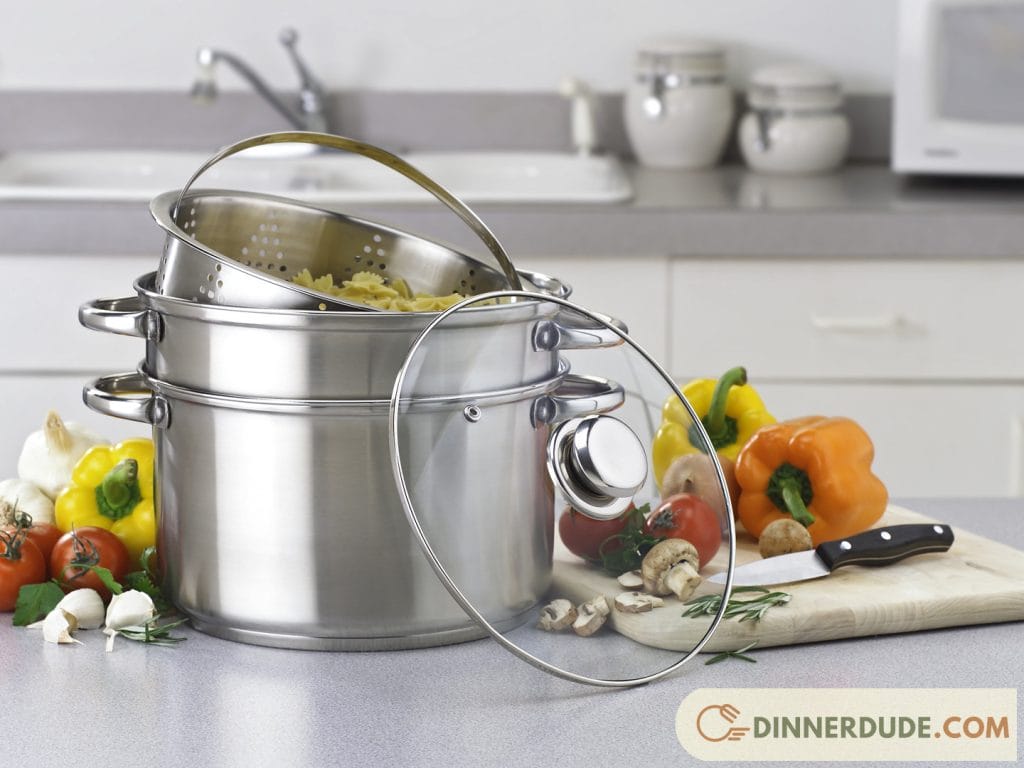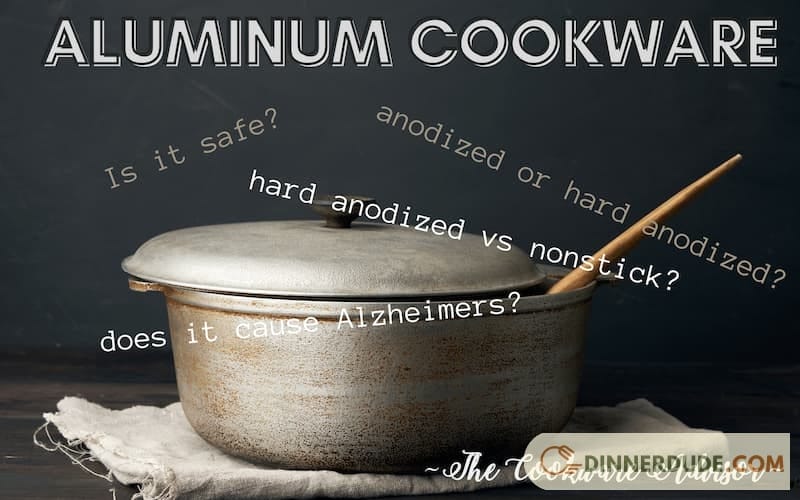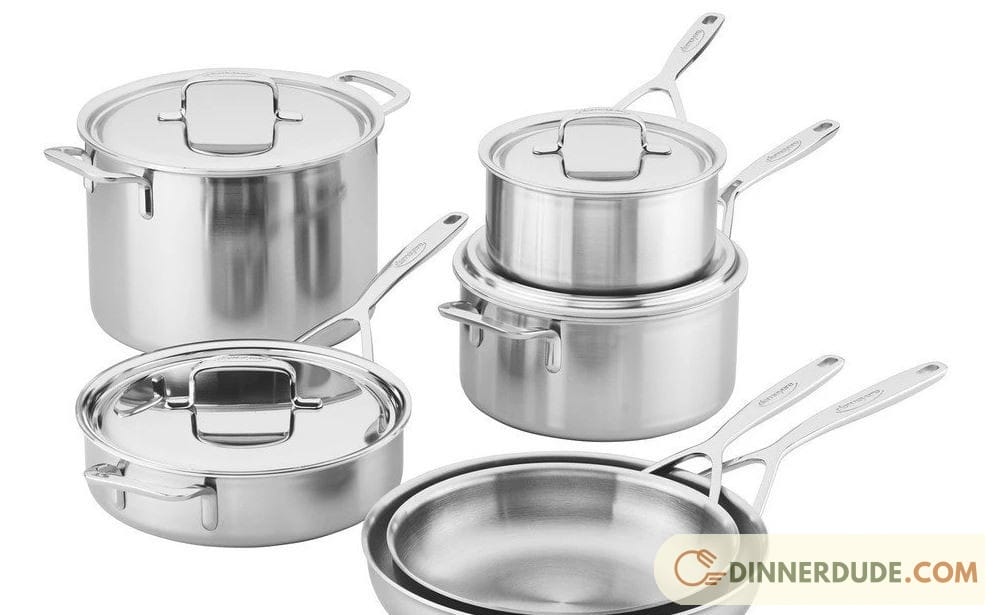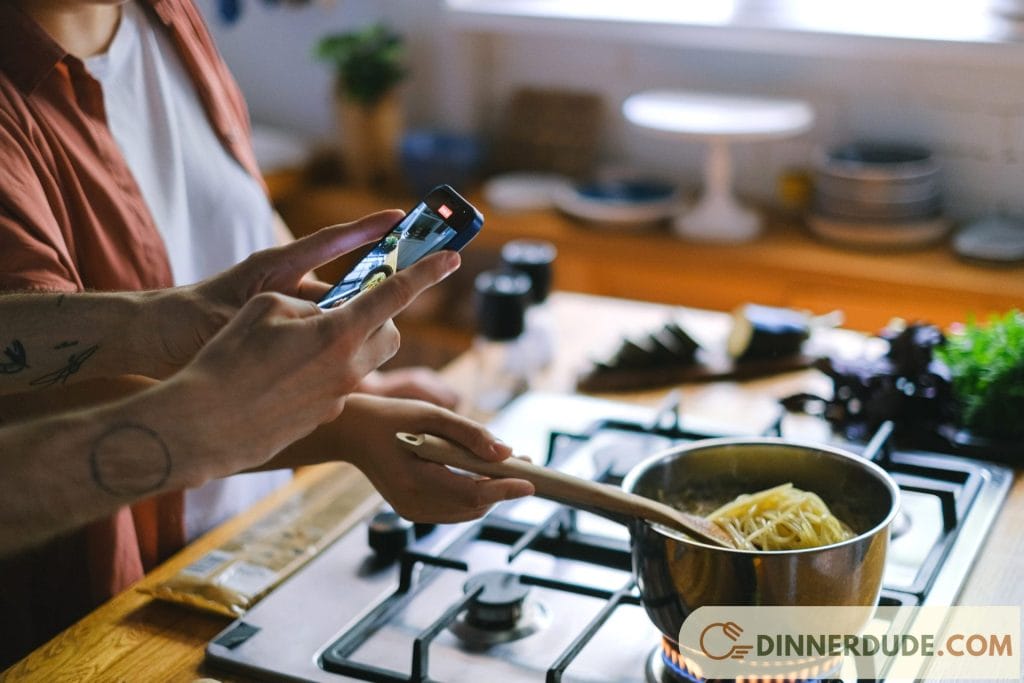The safety of aluminum cookware has been a topic of ongoing discussion and concern within the culinary world. But Are aluminum cookware safe?
In this exploration, Dinnnerdude delves into the nuanced dimensions of aluminum cookware safety, examining factors such as leaching and health implications to provide a comprehensive understanding for mindful and informed cooking choices.
Are aluminum cookware safe?

Aluminum Leaching and Health Implications
Aluminum cookware has been a staple in kitchens worldwide for its affordability and excellent heat conductivity.
Beyond its widespread use in kitchens globally, aluminum cookware raises legitimate concerns about potential health risks. A critical focus centers on the prospect of aluminum leaching into food during the cooking process.
This phenomenon is notably heightened when dealing with acidic or salty foods, such as tomatoes or specific sauces, which have been shown to accelerate the leaching process. The existing body of research hints at a potential link between elevated aluminum intake and health issues, particularly concerning neurological functions.
However, it’s essential to emphasize that the amount of aluminum leached into food from cookware is generally considered minimal and within acceptable limits according to regulatory standards.
Moreover, the human body possesses mechanisms to excrete excess aluminum, contributing to the ongoing debate about the actual health risks associated with aluminum cookware.
Mitigating Risks through Safe Cooking Practices
As we navigate the complexities of aluminum cookware safety, it becomes imperative to adopt a proactive approach in the kitchen. This involves not only understanding the potential risks but also implementing measures to mitigate them.
By delving into safe cooking practices, such as controlling heat exposure and cooking duration, choosing appropriate utensils, and considering alternative varieties like anodized or coated aluminum cookware, individuals can strike a balance between enjoying the convenience of aluminum cookware and safeguarding their health.
This section explores practical guidelines for users to navigate the nuanced landscape of aluminum cookware safety effectively.
Types of Aluminum Cookware and Their Safety Profiles

When evaluating the safety of aluminum cookware, it’s essential to consider the various types available on the market. Different manufacturing processes and treatments impact the safety and performance of these cooking vessels.
- Anodized Aluminum Cookware
Anodized aluminum cookware undergoes a process that enhances its resistance to corrosion and makes the surface harder. This type of cookware is considered safer than regular aluminum cookware, as the anodization process creates a protective layer that reduces the potential for aluminum leaching into food.
- Non-Stick Aluminum Cookware
Non-stick aluminum cookware often features a coating to prevent food from sticking. However, the safety of non-stick coatings, which may contain other chemicals like PTFE or PFOA, has raised separate concerns.
Scratching or deterioration of the non-stick surface could expose the aluminum underneath, potentially impacting food safety.
Tips for Safe Use of Aluminum Cookware

While the safety of aluminum cookware remains a nuanced topic, there are measures you can take to minimize potential risks and ensure safe usage in your kitchen.
- Avoid High Heat and Prolonged Cooking Times: Limit exposure to high heat and extended cooking times, as these factors can increase the likelihood of aluminum leaching.
- Use Wooden or Silicone Utensils: Opt for utensils made from wood or silicone to avoid scratching the surface of the cookware, which could potentially expose the aluminum underneath.
- Regularly Inspect and Replace Damaged Cookware: Periodically inspect your aluminum cookware for any signs of damage, such as scratches, pitting, or corrosion. Replace any damaged pieces to maintain the integrity of the cookware.
- Consider Anodized or Coated Options: When choosing aluminum cookware, consider anodized or coated varieties to minimize the risk of aluminum leaching and enhance the overall safety profile.

In conclusion, the Safe Use of Aluminum Cookware is a nuanced and evolving topic. While some concerns exist, incorporating safe cooking practices and opting for specific types of aluminum cookware can mitigate potential risks, allowing you to continue enjoying the benefits of this widely used kitchen material.